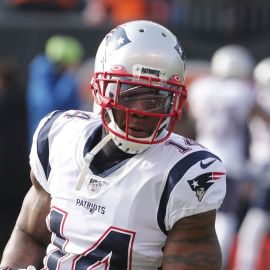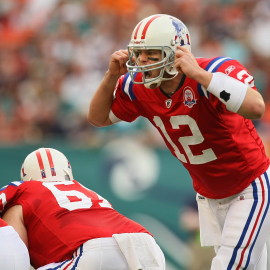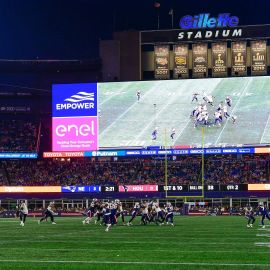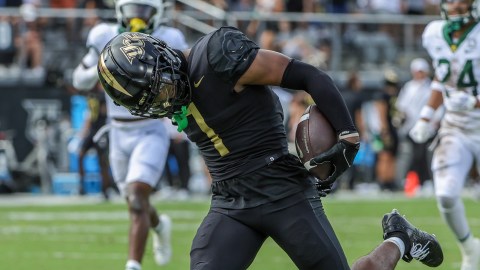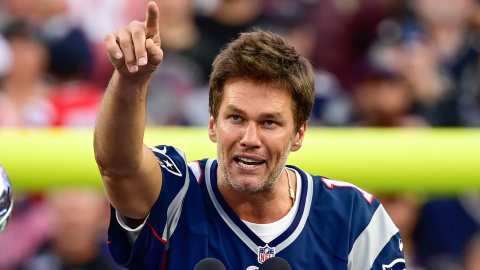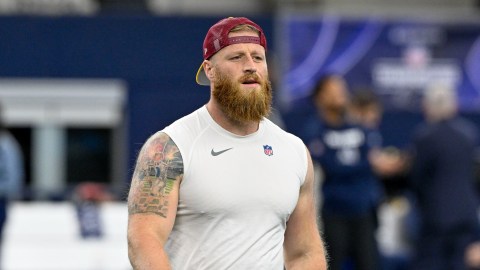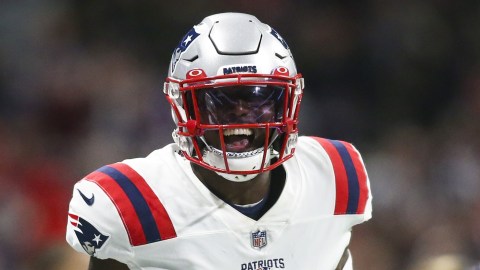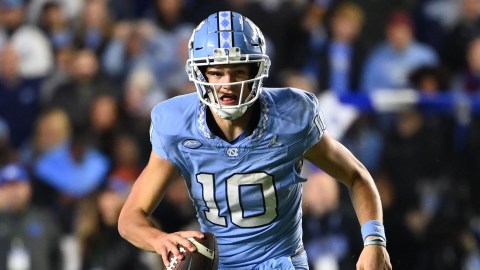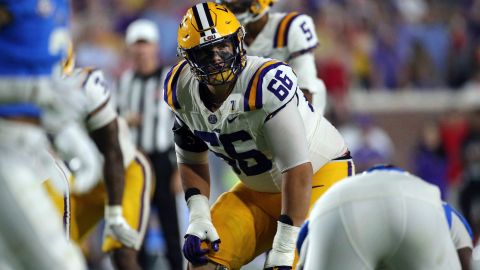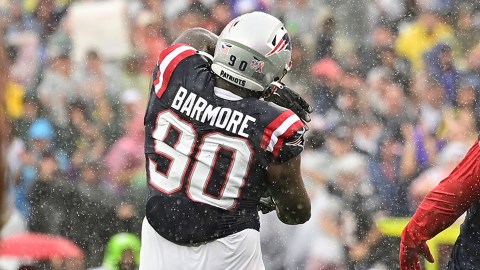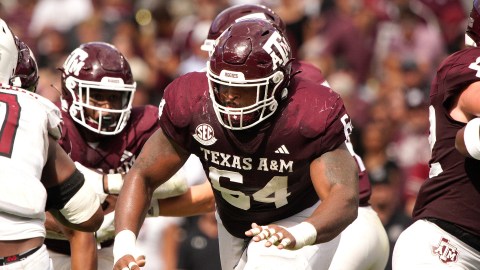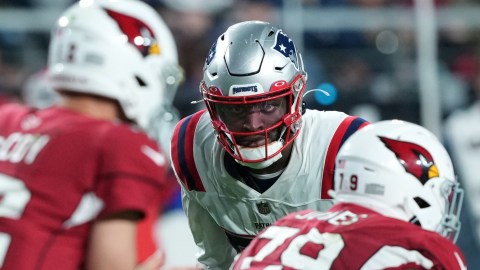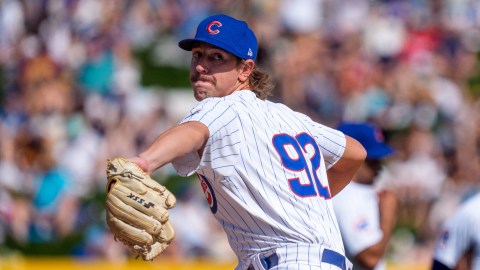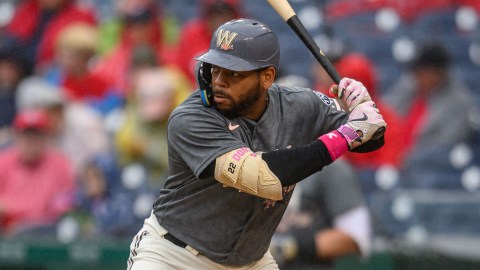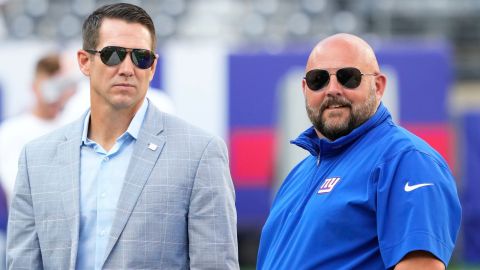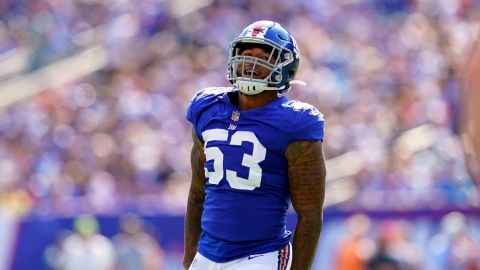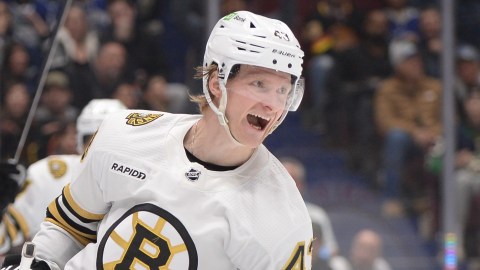You don’t become the most successful coach in NFL history by playing it safe, and Bill Belichick’s Patriots run has been defined by bold decision-making.
For Belichick, who is in charge of both building the roster and executing the game plan as head coach, he has had his share of eyebrow-raising calls both on and off the field.
Here are some of his boldest decisions over the course of his legendary Patriots career.
Benching Drew Bledsoe for Tom Brady
We all know how this one played out. Drew Bledsoe got hurt in 2001, and Tom Brady replaced him. Bledsoe expected to take his starting spot back once he got healthy, while Belichick insisted “I’m gonna play the guy I think gives us the best chance to win every week.” Ultimately, he decided that guy was Brady, despite Bledsoe signing a 10-year, $103 million deal six months before the season started. Of course, the Patriots won the Super Bowl, Belichick traded Bledsoe and Brady went on to become the greatest quarterback of all time.
Story continues below advertisement
Releasing Lawyer Milloy
Milloy was one of the heroes of that Super Bowl win. Yet, as the 2003 season approached, Belichick and the Patriots wanted to free up some cap space. After Milloy refused to take a paycut, Belichick just straight-up released him — amid a run of four straight Pro Bowl selections — with four years left on his deal. Milloy landed in Buffalo (rejoining Bledsoe), and had five tackles and a sack in the Bills’ 31-0 trouncing of the Patriots in Week 1. Belichick and the Patriots got the last laugh, though; they won the next two Super Bowls as Buffalo went a combined 15-17.
More Patriots History
Taking on the headaches
Over 20-plus years, it seems there aren’t a lot of players Belichick wouldn’t be willing to take a risk on — if the price is right. The list of buy-low stars is a long one: Randy Moss, Antonio Brown, Chad Ochocinco, Josh Gordon, Albert Haynesworth and Corey Dillon all come to mind. Those moves came with varying levels of success. Some, like Moss and Dillon, worked as well as one could have imagined. Others, like Brown or Haynesworth, were abject failures. All of them were bold, all things considered.
Fourth-and-2
The 2009 Patriots were a flawed bunch, but they went into Indy on Nov. 15 for “Sunday Night Football” with a chance to really make a statement. A fourth-quarter touchdown put the Patriots a 31-14 lead over the 8-0 Colts, but Peyton Manning led a comeback. With 2:08 to play, and the Patriots clinging to a 34-28 lead, Belichick opted to keep his offense on the field for a fourth-and-2 from their own 28-yard line instead of punting it away to Manning. Brady threw it to Kevin Faulk beyond the sticks, but the running back bobbled it before being tackled short of the line to gain. Four plays later, the Colts scored the game-winning touchdown.
“It didn’t work out, and I’m not apologizing to anyone for being aggressive and trying to win. That’s what we’re here for.”
Bill Belichick to his team, as seen on “A Football Life”
Taking the wind
Then again, not all of Belichick’s boldest decisions against Manning came back to haunt him. On another Sunday night tilt, this time with Manning under center for Denver, the Broncos opened a 24-0 lead on an unseasonably frigid November night. This time, it was the Patriots who mounted the comeback, forcing the game to overtime. New England even won the coin toss, but Belichick made the jaw-dropping decision to take the wind, not the ball, and kickoff to Manning. The Broncos even got multiple chances, but Manning couldn’t cut the 22 mph winds, and Denver didn’t come close to scoring. An inexplicable special teams gaffe by the Broncos set the stage for a wild Patriots win.
Story continues below advertisement
Benching Butler
One of Belichick’s most inexplicable moves might have been the most costly. Malcolm Butler might have been an undrafted free agent, but the cornerback was a second-time All-Pro selection entering the 2017 season. He played in all 16 games and played a combined 141 snaps in New England’s divisional and conference championship wins. Yet, when the Patriots took the field against Philadelphia for the Super Bowl in Minnesota, Butler remained on the sidelines. He stayed there for the entire game save for one special teams snap. A secondary featuring Johnson Bademosi and Jordan Richards simply got torched by Nick Foles and the Eagles. Despite the Patriots setting a Super Bowl record for yards in a game, Foles and the Eagles pulled off the upset as Butler watched from the sideline. After the game, Belichick insisted the move was for the best of the team. There are plenty of theories, whispers and rumors as to why Butler didn’t play, but no one has ever definitively confirmed any of those. In fact, Butler even got a second tour of duty with the Patriots in 2020 and 2021.
Bye-bye, Brady
Belichick might take too much blame for Brady’s exit in 2020, but such is life when the entire football operation runs through you. Some might even say the coach greased the skids by drafting Jimmy Garoppolo in 2014 or when Belichick essentially threw Brady under the bus in the early days of Deflategate. By the end, it had become pretty clear the relationship couldn’t continue, despite Brady’s public insistence he wanted to stay in New England. Ultimately, though, the Patriots — Belichick and owner Robert Kraft — wouldn’t stand in Brady’s way, and he bolted for the Buccaneers where he won a Super Bowl in his first season with Tampa Bay.
Handing the keys to Patricia and Judge
Things went from bad to worse for Belichick in the post-Brady era ahead of the 2022 campaign. Mac Jones impressed in his 2021 rookie season, but that was under Josh McDaniels. The longtime offensive coordinator left to take the Las Vegas Raiders’ head-coaching job after the season. Belichick, to the bewilderment of just about everyone, believed Matt Patricia and Joe Judge were the best options to shepherd Jones through his ever-important second season. Patricia was the de facto offensive coordinator, while Judge served in a quarterbacks coach role. The experiment failed, to say the least. The Patriots finished 25th in offensive touchdowns and 23rd in offensive DVOA. Jones, meanwhile, regressed to a point where it became a conversation about whether his growth as an NFL quarterback had been permanently stunted.
Story continues below advertisement
Featured image via Joe Camporeale/USA TODAY Sports Images
